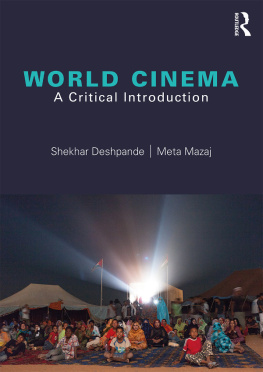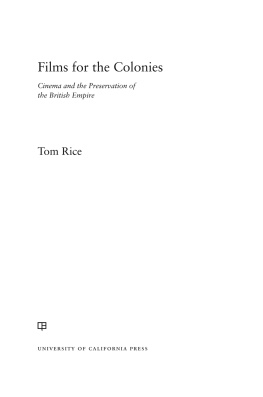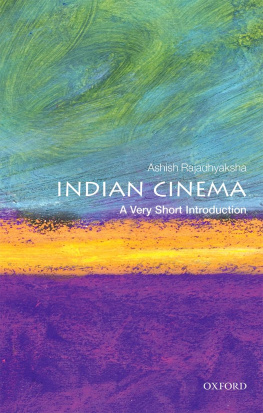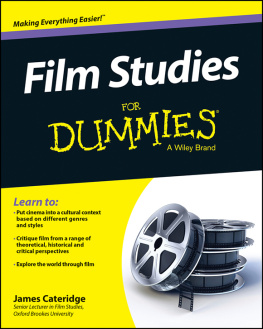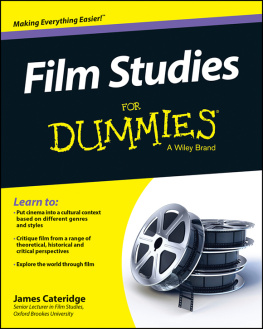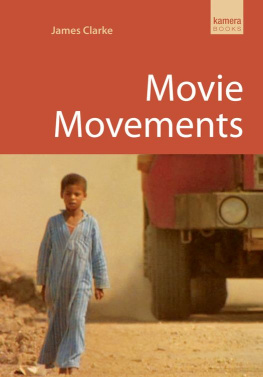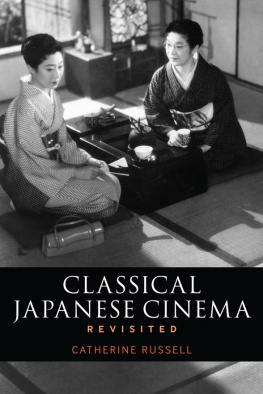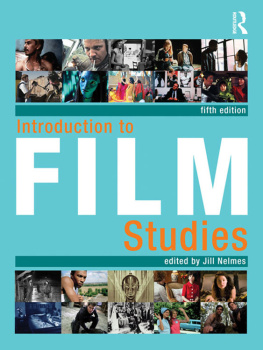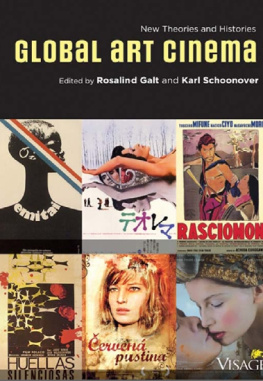
p.i
World Cinema
World Cinema: A Critical Introduction is a comprehensive yet accessible guide to film industries across the globe. From the 1980s onwards, new technologies and increased globalization have radically altered the landscape in which films are distributed and exhibited. Films range from the large-scale industries of India, Hollywood, and Asia, to the small productions in Bhutan and Morocco. They are seen in multiplexes, palatial art cinemas in Cannes, traveling theaters in rural India, and on millions of hand-held mobile screens.
Authors Deshpande and Mazaj have developed a method of charting this new world cinema that makes room for divergent perspectives, traditions, and positions, while also revealing their interconnectedness and relationships of meaning. In doing so, they bring together a broad range of issues and examplestheoretical concepts, viewing and production practices, film festivals, large industries such as Nollywood and Bollywood, and smaller and emerging film culturesinto a systemic yet flexible map of world cinema.
The multi-layered approach of this book aims to do justice to the depth, dynamism, and complexity of the phenomenon of world cinema. For students looking to films outside of their immediate context, this book offers a blueprint that will enable them to transform a casual encounter with a film into a systematic inquiry into world cinema.
Shekhar Deshpande is Professor and Founding Chair of Media and Communication Department at Arcadia University, where he held the Frank and Evelyn Steinbrucker Endowed Chair from 20052008. He teaches a broad variety of courses in film theory and analysis, critical theory, cultural studies, and world cinema. His writings have appeared in Senses of Cinema , Studies in European Cinema , Seminar , and Widescreen . He is the author of the forthcoming Anthology Film and World Cinema .
Meta Mazaj is Senior Lecturer in Cinema and Media Studies at the University of Pennsylvania. She has taught world cinema in both large lecture classes and smaller, discussion-oriented seminars. Her articles on Eastern European cinema, Balkan cinema, and small and marginal cinema have appeared in Cineaste , Studies in Eastern European Cinema , and Situations: Project of the Radical Imagination . She is the author of Once Upon a Time There Was a Country: National and Cynicism in the Post-1990s Balkan Cinema (2008), and co-editor, with Timothy Corrigan and Patricia White, of Critical Visions in Film Theory: Classic and Contemporary Readings (2010).
p.iii
World Cinema
A Critical Introduction
Shekhar Deshpande and
Meta Mazaj

p.iv
First published 2018
by Routledge
2 Park Square, Milton Park, Abingdon, Oxon OX14 4RN
and by Routledge
711 Third Avenue, New York, NY 10017
Routledge is an imprint of the Taylor & Francis Group, an informa business
2018 Shekhar Deshpande and Meta Mazaj
The right of Shekhar Deshpande and Meta Mazaj to be identified as authors of this work has been asserted by them in accordance with sections 77 and 78 of the Copyright, Designs and Patents Act 1988.
All rights reserved. No part of this book may be reprinted or reproduced or utilised in any form or by any electronic, mechanical, or other means, now known or hereafter invented, including photocopying and recording, or in any information storage or retrieval system, without permission in writing from the publishers.
Trademark notice : Product or corporate names may be trademarks or registered trademarks, and are used only for identification and explanation without intent to infringe.
British Library Cataloguing-in-Publication Data
A catalogue record for this book is available from the British Library
Library of Congress Cataloging-in-Publication Data
Names: Deshpande, Shekhar A., 1953- author. | Mazaj, Meta, 1971- author.
Title: World cinema : a critical introduction / Shekhar Deshpande and Meta Mazaj.
Description: New York : Routledge, 2018. | Includes index.
Identifiers: LCCN 2017033821| ISBN 9780415783569 (hardback : alk. paper) | ISBN 9780415783576 (pbk. : alk. paper) | ISBN 9780203129500 (ebook)
Subjects: LCSH: Motion picturesHistory. | Motion pictures.
Classification: LCC PN1993.5.A1 D465 2018 | DDC 791.4309dc23
LC record available at https://lccn.loc.gov/2017033821
ISBN: 978-0-415-78356-9 (hbk)
ISBN: 978-0-415-78357-6 (pbk)
ISBN: 978-0-203-12950-0 (ebk)
Typeset in Bembo
by Swales & Willis Ltd, Exeter, Devon, UK
Every effort has been made to contact copyright holders. Please advise the publisher of any errors or omissions, and these will be corrected in subsequent editions.
p.v
To Taja, Roheen, and Nakul
May your world be as enjoyable, nourishing, and cosmopolitan as world cinema!
p.xi
p.xii
p.xiii
p.xiv
p.xv
p.xvi
p.xvii
p.xviii
While every effort has been made to trace copyright holders and obtain permission, this has not been possible in all cases. Any omissions brought to our attention will be remedied in future editions.
p.xix
If it takes a village to raise a child, it takes a lot more to complete a book. First, there is a more distant yet familiar transnational community of scholars and filmmakers who have already laid essential pathways to think about world cinema. A project such as this one is indebted to their thoughtful, creative foundations, and their rigor and richness of knowledge. Then there is a closer and warmer community of colleagues and friends whose unstinting support, intellectual nourishment, and continuous encouragement made this a project a reality. Together, these communities constitute a world outside of which this book would be inconceivable.
We owe our deepest gratitude to Natalie Foster, Senior Editor at Routledge, who shepherded this ambitious endeavor from its earliest stages to completion. Her patience, kindness, and support on many levels were an important constant throughout this long and dizzyingly complex process. We are grateful to our fantastic editorial team at Routledge for their inspirational work: Sheni Kruger, Kitty Imbert, and Jennifer Vennall, as well as our production team, especially Tom Cole and Andrew Melvin.
We entrusted the first draft of the completed manuscript to Anna Corrigan, a terrific reader and superb editor; we offer her a special bouquet of gratitude. Thanks also to the anonymous readers of the manuscript, who expressed enthusiastic endorsement of the project and offered valuable advice.
The book benefited greatly from numerous interactions and conversations over the years with colleagues, filmmakers, and friends who share our passion for world cinema. In 2014, Diane Carson and William Costanzo invited us to contribute to Cinema Journal s Teaching Dossier New Approaches to Teaching World Cinema, putting our pedagogical ideas to the test in light of their own wisdom and experiences. We have learned so much through conversations with Geoffrey Gilmore; his illuminating vision, experience, and fresh insights into global independent filmmaking and distribution contributed to our own navigation through the complex landscape of world cinema. Onookome Okome at the University of Alberta, and the late Akpor Otebele, brought us closer to Nollywood through many inspiring, eye-opening conversations, and a wealth of knowledge about African cinema.
Thanks to Bela and Parag Amladi, Dev Benegal, K. Hariharan, Bikas Mishra, and Nandita Dutta for their friendship, warmth, inspiring conversations, and shared cinephilia, and for being our comrade spectators of world cinema. Shekhar is grateful to his friend Ramiah Shankar for countless hours of conversation, co-spectatorship, and feverishly passionate cinephilia. Each cinematic encounter is still laced with fond memories of him. A big bow also to Feruzi Anjirbag and Anjoo Daswani, the original BFFs before it became fashionable. Special and heartfelt thanks must go to our very dear friends Alessandra Mirra and Peter Lenik for many movie marathons, interminable conversations about world cinema, and unreserved enthusiasm for the project. Iggy Cortez, our brilliant interlocutor on Asian cinema, was always there to refresh and re-examine our assumptions.
Next page
